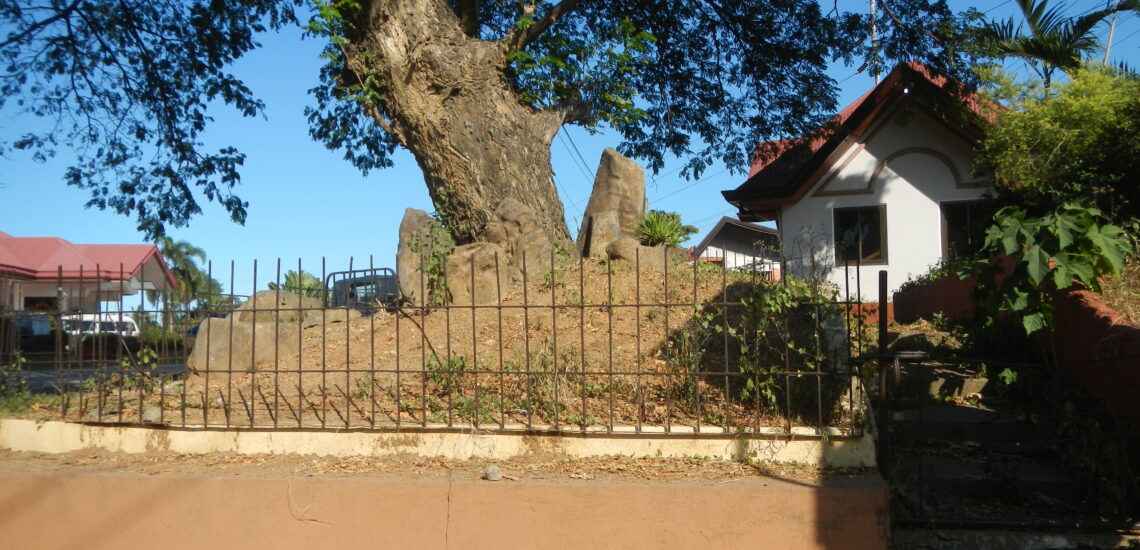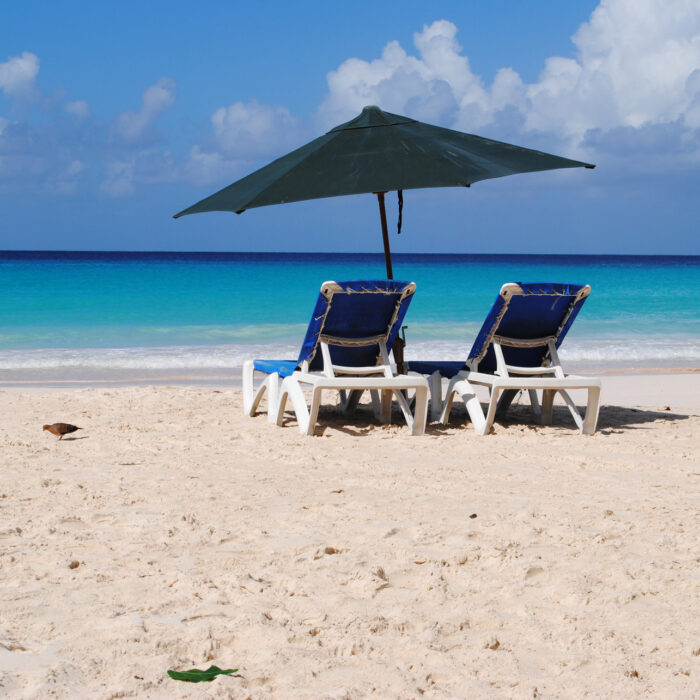Quick facts about Gabon:
- Population: Approximately 2.5 million people.
- Capital: Libreville.
- Official Language: French.
- Other Languages: Various indigenous languages, including Fang, Myene, and Nzebi.
- Currency: Central African CFA franc (XAF).
- Government: Unitary presidential republic.
- Major Religion: Christianity (predominantly Roman Catholic and Protestant), with traditional beliefs also practiced.
- Geography: Located in Central Africa, bordered by Equatorial Guinea to the northwest, Cameroon to the north, the Republic of the Congo to the east and south, and the Atlantic Ocean to the west. Gabon is known for its coastal plains, rainforests, and savannas.
Fact 1: The capital of Gabon was founded by freed slaves
The capital of Gabon, Libreville, was indeed founded by freed slaves in the mid-19th century. In 1849, the French naval ship Elizia captured a slave ship and subsequently liberated its captives near the Gabonese coast. These freed individuals established a settlement along the Komo River and named it Libreville, which translates to “Free Town” in French, reflecting their newly attained freedom.
Libreville’s founding as a city by freed slaves was part of a larger French colonial movement, seeking to establish footholds along Africa’s west coast, both as a means to combat the Atlantic slave trade and to assert colonial influence. The city’s growth was relatively slow until the 20th century, when it became Gabon’s administrative and political hub under French colonial rule. Today, Libreville serves as Gabon’s largest city and capital, holding both symbolic and historical significance.
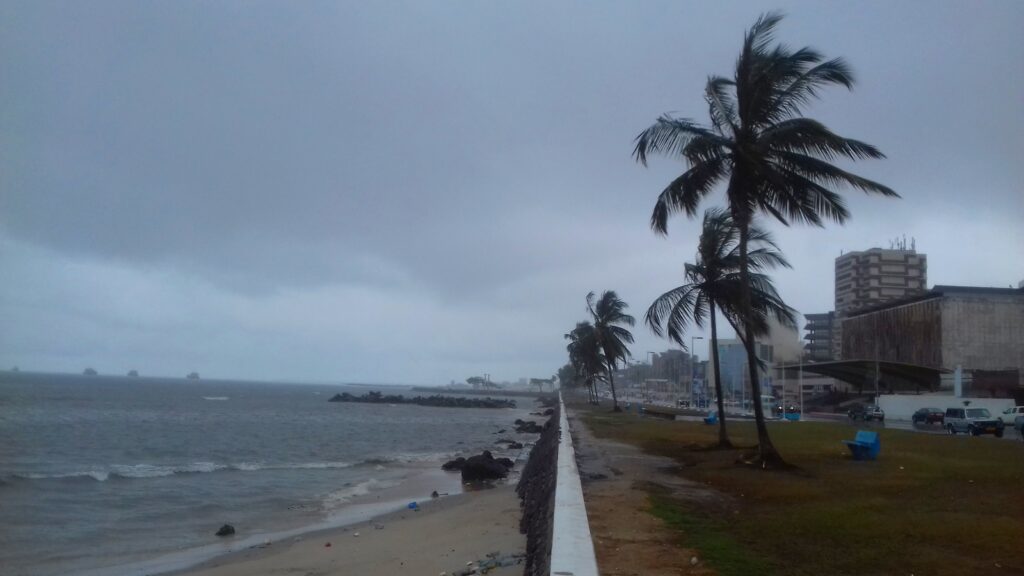
Fact 2: Gabon is an equatorial country with an appropriate climate
Gabon, located on the equator, has a tropical climate that matches its equatorial geography. This climate is typically characterized by high humidity, warm temperatures, and significant rainfall, especially in the rainy seasons that stretch from October to May. Temperatures generally range from around 24°C to 28°C (75°F to 82°F) year-round, with minimal fluctuation, although inland areas and higher elevations might experience slightly cooler conditions.
This climate nurtures Gabon’s lush rainforests, which cover around 85% of the country and support a vast diversity of flora and fauna. Gabon’s equatorial climate also supports its diverse ecosystems, from coastal mangroves to the dense, biodiverse rainforests that are home to gorillas, elephants, and many other species, making Gabon one of the most ecologically rich countries in Africa.
Fact 3: Thanks to biodiversity, Gabon has developed ecotourism
Gabon’s rich biodiversity has fostered a strong ecotourism sector, positioning the country as a premier destination for nature enthusiasts. National parks like Loango, Ivindo, and Pongara attract visitors with opportunities to see elephants, gorillas, and hippos, which are relatively rare and unique to this part of Africa. The government has promoted ecotourism initiatives to protect these ecosystems, integrating conservation with tourism through controlled and sustainable practices.
Loango National Park, often called “Africa’s Last Eden,” is particularly famous for its pristine beaches where wildlife can be observed, including forest elephants, surfing hippos, and even humpback whales along the coast. Gabon’s ecotourism model aims to preserve this biodiversity while boosting the local economy, offering a rare, low-impact approach to tourism that respects the natural environment.
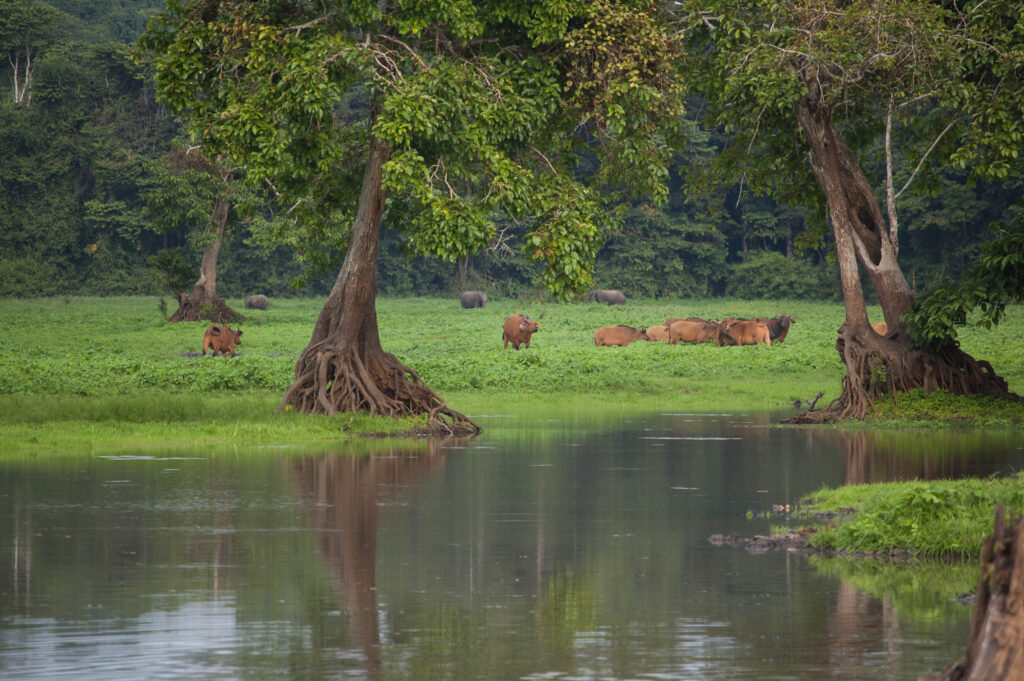
Fact 4: Gabon has been inhabited by humans for hundreds of thousands of years
Gabon has a long history of human habitation, dating back hundreds of thousands of years. Archaeological evidence shows that ancient communities thrived here, supported by the area’s rich natural resources and favorable climate. Some of the oldest stone tools discovered in Central Africa have been found in Gabon, suggesting continuous human presence through multiple prehistoric periods.
In addition to tools, Gabon also contains fascinating petroglyphs, especially in the Haut-Ogooué region. These rock carvings, attributed to early Gabonese societies, give insights into the cultural and artistic expressions of ancient peoples.
Fact 5: Gabon has a large population of gorillas
Gabon is home to one of the largest populations of western lowland gorillas, particularly within its expansive national parks and protected areas. However, this population has faced serious threats from multiple Ebola virus outbreaks in the past. Notably, in 1994 and again in the early 2000s, Ebola spread through Gabon’s forests, devastating gorilla populations and killing a significant percentage. Research has shown that these outbreaks impacted not only human communities but also wildlife populations, with some areas witnessing a drop of nearly half of the gorilla and chimpanzee numbers due to the disease.
Conservation efforts since then have intensified, with a focus on monitoring gorilla health, establishing Ebola vaccination research for wildlife, and enforcing protective measures in Gabon’s national parks.
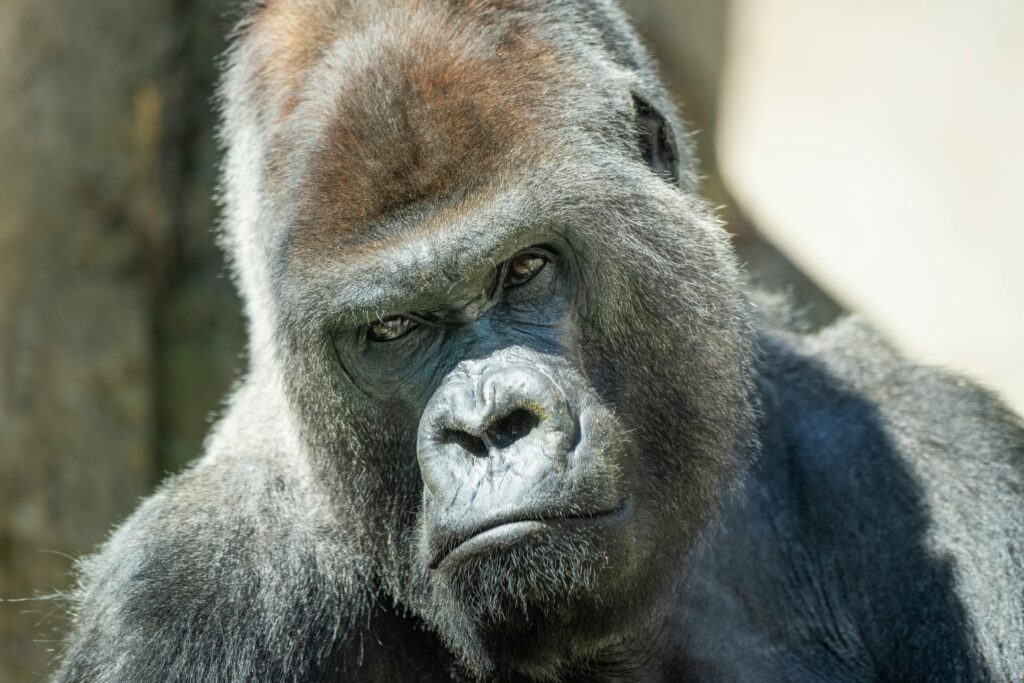
Fact 6: Gabon is home to leatherback turtles
Gabon’s coastline is a key nesting ground for leatherback turtles, the largest sea turtles in the world. Each year, thousands of leatherbacks come ashore to lay eggs on Gabon’s beaches, particularly within the protected areas like Pongara and Mayumba National Parks. Gabon’s beaches are part of a critical Atlantic nesting area for this endangered species, with recent surveys showing that the country hosts one of the largest leatherback nesting populations globally. These turtles face threats from habitat loss, fishing nets, and climate change, but Gabon has taken significant steps to protect them by enforcing marine conservation policies and creating a network of marine parks.
Fact 7: Gabon has many caves, some of which have not yet been explored by anyone
Gabon is known for its rich geological diversity, which includes numerous caves, many of which remain unexplored. The country’s unique terrain, characterized by limestone formations, creates ideal conditions for the development of extensive cave systems. For example, the Lékabi Caves and the caves in the Mayumba National Park are noted for their complex structures, yet detailed exploration of these areas has been limited.
Recent geological surveys have indicated that there are many more caves hidden within Gabon’s lush rainforests, some of which may contain significant archaeological and paleontological findings. These unexplored caves may offer insights into Gabon’s natural history and could potentially house undiscovered species. The combination of biological and geological research presents a unique opportunity for scientists and adventurers alike.
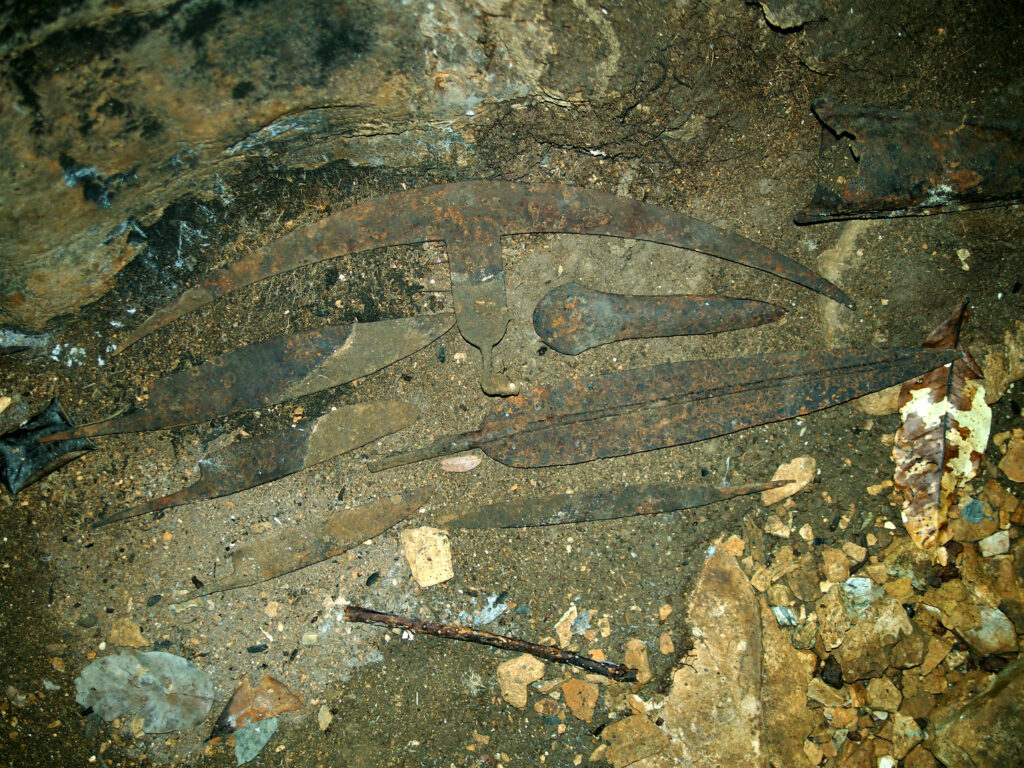
Fact 8: Gabon has a rich folk tradition
Oral storytelling is a vital aspect of Gabonese culture, serving as a means of passing down history, moral lessons, and folklore from one generation to the next. Elders often gather children and community members to share tales that embody the values and beliefs of their society, reinforcing cultural identity.
Coloring and mask-making are also integral to Gabon’s artistic expression. Masks are often crafted for various ceremonies, including dances and rituals, and they hold deep spiritual significance. The intricate designs and vibrant colors used in these masks are not only aesthetically pleasing but also convey meanings related to cultural beliefs and social status.
Fact 9: Gabon has a young population
Gabon boasts a notably young population, with a median age of around 20 years, indicating a vibrant demographic trend. The country allows citizens to vote starting at the age of 21. Gabon has also made strides in human development, achieving a Human Development Index (HDI) ranking that places it among the more advanced countries in Africa, although challenges remain in health, education, and economic equity.
In terms of education, Gabon has been working to improve access and quality, especially in rural areas, which is crucial for harnessing the potential of its youthful populace. Economic growth has been driven by oil revenues, but there are efforts to diversify the economy and invest in sectors such as tourism and agriculture.
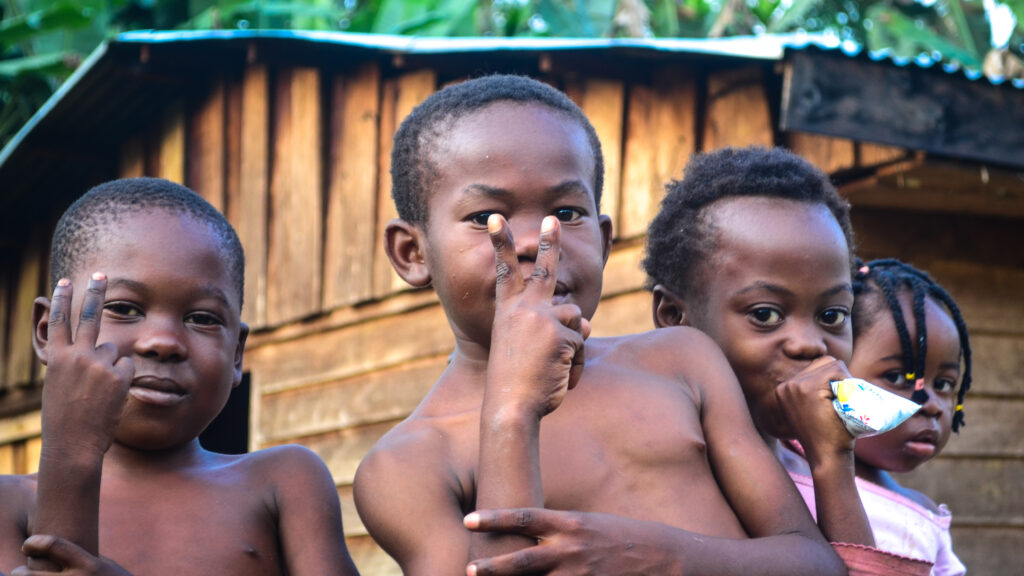
Fact 10: About 80% of Gabon’s territory is forest
About 80% of Gabon’s land area is covered by dense tropical forests, making it one of the most forested countries in Africa. This vast forest cover plays a critical role in the country’s biodiversity, serving as a habitat for a wide variety of wildlife, including gorillas, elephants, and numerous bird species. Gabon’s forests are also significant for their carbon storage capacity, contributing to global efforts against climate change.
The government of Gabon has recognized the importance of these forests and has initiated various conservation efforts. The country is home to several national parks, including Loango and Ivindo, which are designed to protect its rich ecosystems while promoting ecotourism.

Yayımlanmış Ekim 26, 2024 • Okuma süresi: 7 dakika

